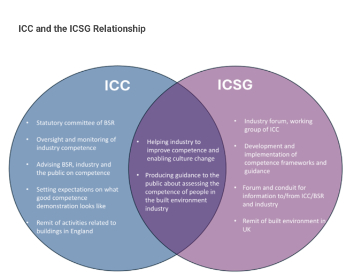The election, skills, net zero and regs reform
Contents |
[edit] NICEIC acknowledges the outcome of the general election
Following the outcome of the general election, NICEIC supports the new government's plans to tackle the skills gap, accelerate the transition to net zero, and reform building regulations. Technical Director at NICEIC, Paul Collins says: “We believe these priorities align closely with the needs of our certified businesses and the wider industry.”
[edit] What we know so far
On 5 July 2024, Prime Minister Keir Starmer announced his cabinet following Labour’s win in the UK general election.
Ed Miliband assumed the role of Secretary of State for Energy Security and Net Zero. As Secretary of State for Energy and Climate Change (2008 to 2010), he oversaw the introduction of the UK Climate Change Act 2008, making the UK the first country to legally commit to climate targets. In an official statement, Ed Miliband outlined key objectives for addressing the climate crisis, including boosting energy independence, upgrading homes, and leading international climate action. To read more click here.
Rachel Reeves was appointed Chancellor of the Exchequer. During her first speech as chancellor, Rachel Reeves declared an end to the ban on new onshore wind projects in England, paving the way for a surge in onshore wind installation.
Angela Rayner assumed the role of Secretary of State for Housing, Communities, and Local Government, and Deputy Prime Minister. Labour’s manifesto pledged to address the housing crisis through a combination of policy reforms, increased homebuilding, and support for first-time buyers. While it is too early to see how these changes will unfold, we expect to see a wave of policy and regulatory changes soon. The exact nature and extent of these changes remains uncertain until we receive further clarity from the government.
[edit] Supporting the electrical industry and NICEIC’s 40,0000 certified businesses
Paul Collins added: “Our commitment to public safety and the transition to net zero is reinforced through our continued work with the Building Safety Regulator, MCS, and the Department for Energy Security and Net Zero. By advocating for our industry, we are actively helping to shape the future of the sector. NICEIC’s certification and training services remain essential to ensure the current workforce is delivering the high standards needed to address the current skills gap and meet demands for low carbon technologies.”
NICEIC continues to support its 40,000 NICEIC-certified businesses across a range of industry committees and working groups. These include JPEL/64; the working group responsible for the development of the BS 7671 – the British Standard for the Electrical Industry against which NICEIC-certified businesses for electrotechnical work are assessed, and The Future Home Standards Steering Group which is advising government and setting the rules for how new homes should be built to use less energy and reduce carbon emissions.
NICEIC is continuing to closely monitor developments and is providing NICEIC-certified businesses with updates.
This article was issued via press release as 'NICEIC acknowledges the outcome of the general election' dated July 17, 2024.
[edit] Related articles on Designing Buildings
- Actuate UK issues climate warning and urges action.
- Aligning net zero with the levelling-up agenda.
- At a Crossroads; Pathways to a Net Zero Future.
- A zero-carbon UK by 2050?
- Carbon negative.
- Carbon neutral.
- Construction skills crisis threatens UK net zero goals.
- Government net zero review 2022.
- CO2nstruct Zero programme grows to over 70 businesses.
- Half of public sector bodies not planning for net zero carbon.
- Net zero strategy: build back greener.
- Planning the infrastructure transition to net-zero.
- Scotland publishes plans to reach net zero targets with Heat in Buildings Strategy.
- Skilled workforce unable to meet net zero ambitions.
- Smoothing the path to net zero.
- The Edge policy proposals for the built and natural environment 2022.
- The Low Carbon Transition Plan: National strategy for climate and energy.
Featured articles and news
Twas the site before Christmas...
A rhyme for the industry and a thankyou to our supporters.
Plumbing and heating systems in schools
New apprentice pay rates coming into effect in the new year
Addressing the impact of recent national minimum wage changes.
EBSSA support for the new industry competence structure
The Engineering and Building Services Skills Authority, in working group 2.
Notes from BSRIA Sustainable Futures briefing
From carbon down to the all important customer: Redefining Retrofit for Net Zero Living.
Principal Designer: A New Opportunity for Architects
ACA launches a Principal Designer Register for architects.
A new government plan for housing and nature recovery
Exploring a new housing and infrastructure nature recovery framework.
Leveraging technology to enhance prospects for students
A case study on the significance of the Autodesk Revit certification.
Fundamental Review of Building Regulations Guidance
Announced during commons debate on the Grenfell Inquiry Phase 2 report.
CIAT responds to the updated National Planning Policy Framework
With key changes in the revised NPPF outlined.
Councils and communities highlighted for delivery of common-sense housing in planning overhaul
As government follows up with mandatory housing targets.
CIOB photographic competition final images revealed
Art of Building produces stunning images for another year.
HSE prosecutes company for putting workers at risk
Roofing company fined and its director sentenced.
Strategic restructure to transform industry competence
EBSSA becomes part of a new industry competence structure.
Major overhaul of planning committees proposed by government
Planning decisions set to be fast-tracked to tackle the housing crisis.
Industry Competence Steering Group restructure
ICSG transitions to the Industry Competence Committee (ICC) under the Building Safety Regulator (BSR).
Principal Contractor Competency Certification Scheme
CIOB PCCCS competence framework for Principal Contractors.
The CIAT Principal Designer register
Issues explained via a series of FAQs.

























